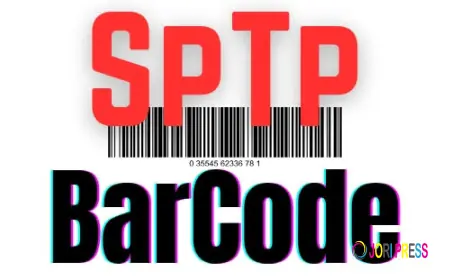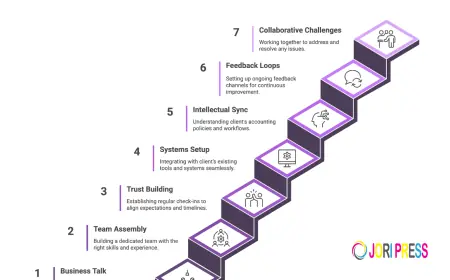The Power of Blockchain: A New Era for Data Integrity and Security

In today's digital landscape, data has become one of the most valuable assets. With increasing incidents of data breaches, cyber-attacks, and unauthorized access to sensitive information, ensuring the integrity and security of data has never been more critical. Organizations are continuously seeking new technologies to safeguard their data, and one of the most promising solutions emerging is blockchain. Blockchain technology is not only changing the way we think about transactions but also reshaping data integrity and security.
Blockchain technology, once associated primarily with cryptocurrencies, has expanded far beyond its original use case. It offers an immutable, decentralized, and transparent framework that holds enormous potential for protecting data and ensuring its integrity. This article explores how blockchain technology is heralding a new era in data security, its role in improving data integrity, and why businesses should consider integrating blockchain solutions through professional Blockchain Development Services.
Understanding Blockchain Technology
Before diving into how blockchain enhances data integrity, it's important to first understand what blockchain is and how it works. At its core, blockchain is a distributed ledger technology (DLT) that securely records transactions across multiple computers. Each transaction is stored in a "block," and these blocks are linked together in a chain, forming a blockchain.
One of the key features of blockchain is decentralization, meaning there is no single point of control or failure. Instead, data is distributed across a network of computers (also known as nodes), making it incredibly difficult to alter or manipulate the data. Once a block is added to the chain, it is immutable—meaning it cannot be changed without altering every subsequent block, a feat that is practically impossible to achieve without majority control of the network.
Because of its decentralization and immutability, blockchain is gaining traction in applications far beyond cryptocurrencies, particularly in areas where data security and integrity are paramount. Now, let's explore how blockchain is transforming data integrity and security.
Blockchain and Data Integrity: How It Works
Data integrity refers to the accuracy, consistency, and trustworthiness of data throughout its lifecycle. In traditional data systems, the integrity of data is often compromised by human error, cyber-attacks, or software bugs. Blockchain addresses these challenges by offering a solution that ensures data is tamper-proof and verifiable.
Immutable Records
One of the key features of blockchain is its immutability. Once a piece of data is entered into a blockchain, it is almost impossible to change. This makes blockchain an ideal solution for maintaining the integrity of data. For example, in sectors like healthcare, financial services, and legal industries, where data integrity is crucial, blockchain guarantees that once data is entered, it cannot be altered or deleted.
The concept of immutability comes from the cryptographic hashing that occurs when data is added to a block. Each block contains a unique cryptographic hash that represents the data within it. This hash is linked to the previous block’s hash, creating a secure, unchangeable chain. If any data is modified, the hash changes, and the altered block becomes invalid. As a result, any attempt to tamper with data would immediately be detectable, ensuring the integrity of the entire blockchain.
Transparency and Auditability
Blockchain also offers unparalleled transparency. Each participant in a blockchain network has access to the same version of the data, and any changes made are visible to all. This level of transparency is particularly useful in industries that require auditability, such as finance and supply chain management.
For instance, in supply chain management, blockchain can be used to track the journey of products from manufacturing to delivery. Every transaction along the way is recorded on the blockchain, allowing all parties to verify the authenticity and origin of products. If a product is found to be counterfeit or adulterated, stakeholders can trace the source of the issue by reviewing the blockchain’s transparent records.
This transparency not only ensures data integrity but also builds trust among participants. Since everyone has access to the same data and can audit it, the chances of fraud or manipulation are minimized.
How Blockchain Improves Security
Data security is a major concern in the digital age. Cyber-attacks, data breaches, and hacking attempts are a daily threat to businesses and individuals. Blockchain technology enhances data security in several ways.
Decentralization
The decentralized nature of blockchain means that there is no central point of attack. In traditional centralized systems, data is stored in one or a few locations, which makes it a target for hackers. However, in a blockchain network, the data is distributed across multiple nodes, making it nearly impossible for an attacker to compromise the system without gaining control of a significant portion of the network.
This decentralization ensures that no single entity can manipulate or alter the data, making blockchain a highly secure solution for storing sensitive information. Even if a hacker manages to breach one node in the network, they would still need to alter the data on the majority of the nodes to change any information, which is computationally infeasible.
Cryptographic Security
Blockchain relies heavily on cryptography to secure data. Each block in the chain contains a cryptographic hash that represents the data within it. This hash is generated using a process called a hash function, which converts data into a fixed-size string of characters.
Moreover, transactions on the blockchain are secured through public-key cryptography. Each participant in the network has a public and a private key. The public key acts as an identifier, while the private key is used to sign transactions and ensure that only authorized users can alter or add data to the blockchain. This cryptographic security ensures that only valid, authorized transactions are recorded, protecting the system from unauthorized access.
Smart Contracts
Smart contracts are another key feature of blockchain that enhances security. A smart contract is a self-executing contract with the terms of the agreement directly written into code. These contracts automatically execute actions when predefined conditions are met, reducing the need for intermediaries and minimizing the risk of fraud.
For example, in a financial transaction, a smart contract could automatically release funds once both parties have fulfilled the terms of the agreement, such as delivering goods or services. Because smart contracts are executed automatically, they reduce the chances of human error or manipulation, further ensuring data security.
Blockchain in Various Industries
The application of blockchain for data integrity and security is not confined to a specific sector. Blockchain is being implemented across various industries to solve complex data management issues. Here are some key industries where blockchain is making a significant impact:
Healthcare
The healthcare industry handles vast amounts of sensitive data, including patient medical records, test results, and treatment histories. Blockchain offers a secure and immutable way to store this data, ensuring that it cannot be tampered with. Additionally, blockchain enables patients to have more control over their medical records by giving them a secure platform to grant or revoke access to healthcare providers.
Financial Services
The financial industry has long struggled with issues related to data integrity and security. Blockchain addresses these issues by providing a transparent, decentralized platform for recording transactions. Blockchain ensures that all financial transactions are accurate, verifiable, and tamper-proof. Furthermore, blockchain’s use in payment processing allows for faster, more secure transactions without the need for intermediaries.
Supply Chain Management
In supply chain management, blockchain technology can be used to track the movement of goods from the manufacturer to the consumer. Blockchain ensures that the data recorded at each stage is accurate and secure, preventing fraud and ensuring transparency. This is especially important in industries like food safety, pharmaceuticals, and luxury goods, where authenticity and traceability are critical.
Legal Industry
Blockchain is also transforming the legal industry by offering a secure way to record contracts, deeds, and other legal documents. Blockchain’s immutability ensures that legal records cannot be altered or forged, providing an extra layer of security. Additionally, smart contracts can automate the execution of legal agreements, streamlining processes and reducing the need for intermediaries.
Why Choose Blockchain Development Services?
As blockchain technology continues to evolve, businesses are increasingly turning to professional Blockchain Development Services to integrate blockchain solutions into their operations. A skilled development team can help businesses navigate the complexities of blockchain and implement solutions tailored to their specific needs.
Working with the Best Blockchain Development Company ensures that your blockchain implementation is secure, scalable, and efficient. These companies have the expertise to help you design and develop customized blockchain solutions that address your data integrity and security requirements. Whether you're looking to create a decentralized application (dApp), implement blockchain for supply chain management, or enhance your existing data security infrastructure, a top-tier blockchain development company can guide you through the process.
Conclusion
Blockchain technology is ushering in a new era of data integrity and security. With its decentralized, immutable, and transparent nature, blockchain offers an unprecedented level of protection for data across various industries. Whether it's ensuring the authenticity of digital records, preventing data breaches, or automating secure transactions, blockchain has the potential to transform how data is stored, managed, and protected.
As more businesses recognize the importance of data integrity and security, blockchain adoption will continue to grow. By partnering with a Best Blockchain Development Company and leveraging Blockchain Development Services, businesses can harness the power of blockchain to safeguard their data, streamline processes, and build trust with customers. Blockchain is not just a technology of the future—it's the key to a more secure, transparent, and trustworthy digital world.
What's Your Reaction?
 Like
0
Like
0
 Dislike
0
Dislike
0
 Love
0
Love
0
 Funny
0
Funny
0
 Angry
0
Angry
0
 Sad
0
Sad
0
 Wow
0
Wow
0


















































